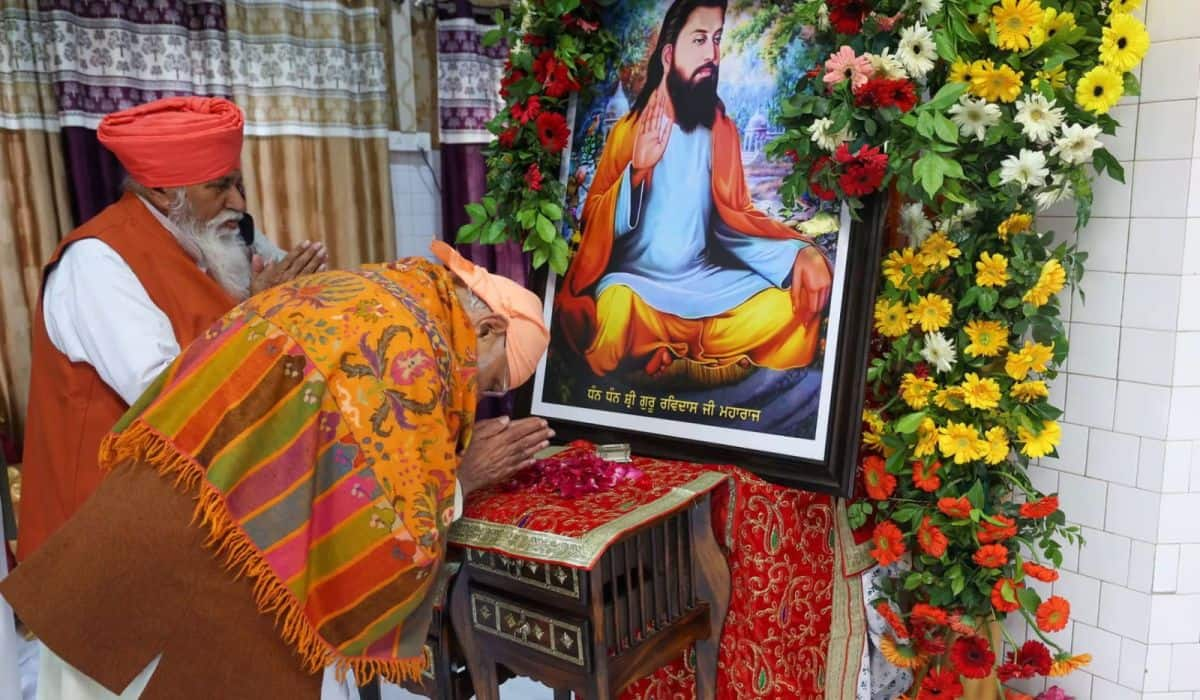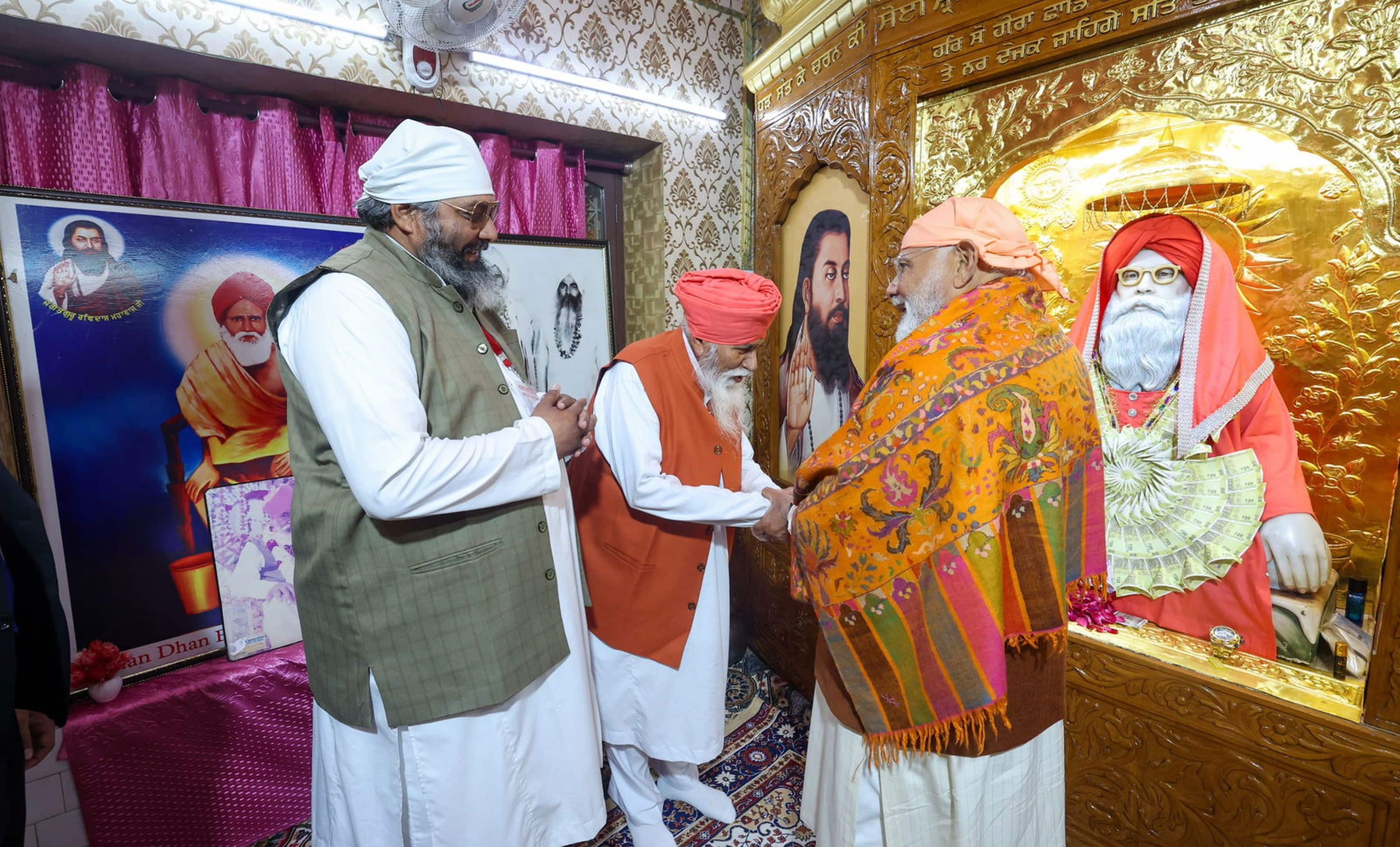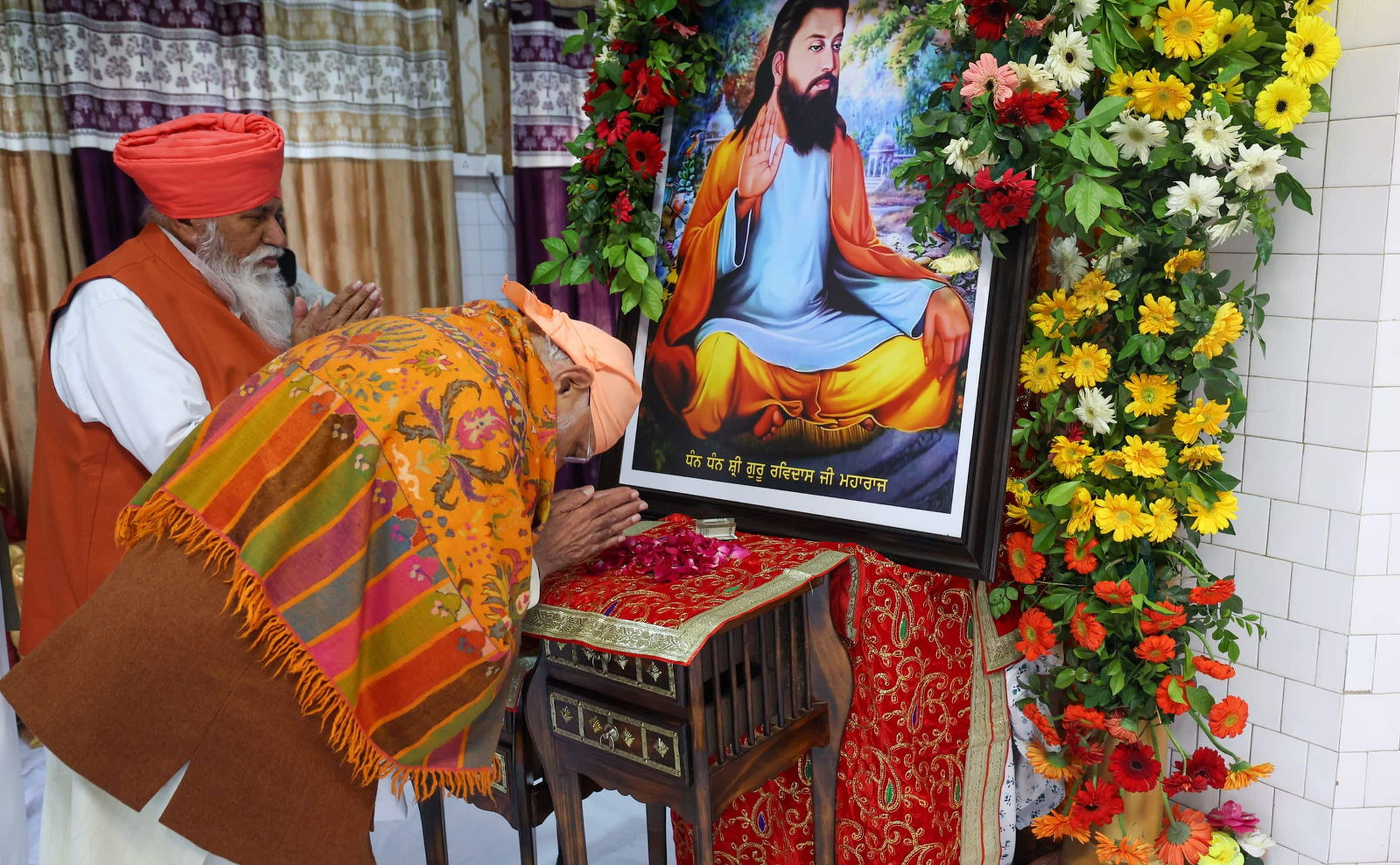Prime Minister Narendra Modi and Japanese Prime Minister Shinzo Abe today jointly laid the foundation stone for India’s first high speed rail project between Mumbai and Ahmedabad.



Speaking on the occasion, at a large public meeting in Ahmedabad, the Prime Minister spoke of the high ambition and willpower of “New India.” He congratulated the people of India on the occasion, and said that the bullet train project will provide speed and progress, and deliver results quickly. He said the Government’s focus is on increasing productivity through high speed connectivity. The Prime Minister thanked Japan for the technical and financial help given to India, for this project. He praised Prime Minister Abe for the fact that this project is being launched within such a short time.

The Prime Minister said that this high speed railway would not only bring two cities closer, but also bring the people living hundreds of kilometers away, closer to each other. He said a new economic system is being developed along the Mumbai-Ahmedabad corridor, and the entire area would become a single economic zone.

The Prime Minister said technology is useful only if it provides benefit to the common man. He said the technology transfer envisaged in this project will benefit Indian Railways, and boost the “Make in India” initiative. He said the project would be eco-friendly as well as human-friendly. He said “high-speed corridors” would be regions for rapid growth in the future.

The Prime Minister said that the Government is working to ensure that infrastructure is developed keeping in mind futuristic requirements. He expressed confidence that everyone would work together to complete this project in the shortest possible time.

Earlier, Japanese Prime Minister Shinzo Abe said that the India-Japan partnership is special, strategic and global. He said that he hopes to see the beauty of India through the windows of the Bullet Train, a few years hence.
ये न्यू इंडिया है और इसके सपनों का विस्तार, इसकी उड़ान असीम है, इसकी इच्छाशक्ति असीमित है: PM @narendramodi
— PMO India (@PMOIndia) September 14, 2017
आज भारत ने अपने एक बरसों पुराने सपने को पूरा करने की ओर बड़ा कदम उठाया है। मैं देश के सवा सौ करोड़ लोगों को बधाई देता हूं: PM @narendramodi
— PMO India (@PMOIndia) September 14, 2017
बुलेट ट्रेन परियोजना, एक ऐसा प्रोजेक्ट है, जो तेज गति, तेज प्रगति, के साथ-साथ तेज टेक्नोलॉजी के माध्यम से तेज परिणाम लाने वाला है: PM Modi
— PMO India (@PMOIndia) September 14, 2017
बुलेट ट्रेन एक ऐसा प्रोजेक्ट है सुविधा भी है, सुरक्षा भी। रोजगार भी लाएगा और रफ़्तार भी। Human friendly भी है, और Eco friendly भी: PM Modi
— PMO India (@PMOIndia) September 14, 2017
अगर आज इतने कम समय में यहां इस प्रोजेक्ट का भूमि पूजन हो रहा है तो इसका बड़ा श्रेय श्री @AbeShinzo को जाता है: PM @narendramodi
— PMO India (@PMOIndia) September 14, 2017
अब next generation growth वहां होगी, जहाँ high speed corridors होंगे: PM @narendramodi
— PMO India (@PMOIndia) September 14, 2017
जब इतनी तेज गति से बदलाव आ रहा है तो आज हमारा जोर कनेक्टिविटी से आगे बढ़कर हाई स्पीड कनेक्टिविटी पर है: PM @narendramodi
— PMO India (@PMOIndia) September 14, 2017
किसी भी देश में आर्थिक प्रगति का सीधा संबंध होता है productivity से। हमारा जोर है: More Productivity with High Speed Connectivity: PM Modi
— PMO India (@PMOIndia) September 14, 2017
अगर कोई ये कहे कि बिना ब्याज के ही लोन ले लो और दस-बीस नहीं, पचास साल में चुकाओ, तो आप यकीन करेंगे क्या? : PM @narendramodi
— PMO India (@PMOIndia) September 14, 2017
भारत को ऐसा दोस्त मिला है जिसने बुलेट ट्रेन के लिए 88 हजार करोड़ का कर्ज सिर्फ 0.1 प्रतिशत की ब्याज दर पर देने का वादा किया है: PM Modi
— PMO India (@PMOIndia) September 14, 2017
मैं जापान का बहुत-बहुत आभार व्यक्त करता हूँ जो इस प्रोजेक्ट के लिए तकनीक और आर्थिक मदद के साथ भारत के सहयोग के लिए आगे आया है: PM Modi
— PMO India (@PMOIndia) September 14, 2017
इस हाई स्पीड रेलवे सिस्टम से ना सिर्फ दो जगहों के बीच दूरी कम होगी बल्कि 500 किलोमीटर दूर बसे दो शहरों के लोग भी और पास आएंगे: PM Modi
— PMO India (@PMOIndia) September 14, 2017
मुंबई-अहमदाबाद रूट पर एक नया economic system भी विकसित हो रहा है। पूरा area ही एक Single Economic Zone में परिवर्तित हो जाएगा: PM Modi
— PMO India (@PMOIndia) September 14, 2017
मैं मानता हूँ कि टेक्नोलॉजी सभी के लिए है। टेक्नोलॉजी का लाभ तभी है जब देश का सामान्य नागरिक भी इसका उपयोग कर सके: PM @narendramodi
— PMO India (@PMOIndia) September 14, 2017
Technology transfer से railways को फायदा होगा, technicians, manufacturers को लाभ मिलेगा और एक तरह से पूरा रेलवे नेटवर्क लाभान्वित होगा: PM
— PMO India (@PMOIndia) September 14, 2017
इससे मेक इन इंडिया को भी मजबूती मिलेगी। Direct और Indirect Employment के हजारों अवसर भी ये प्रोजेक्ट अपने साथ लेकर आ रहा है: PM Modi
— PMO India (@PMOIndia) September 14, 2017
हम देश के future proofing पर ध्यान दे रहे हैं ताकि आने वाली पीढ़ियों के हिसाब से इन्फ्रास्ट्रक्चर का निर्माण किया जा सके: PM @narendramodi
— PMO India (@PMOIndia) September 14, 2017
Railway हो या Highway, Waterway हो या Airway, हम सभी क्षेत्रों में अप्रत्याशित गति से कार्यों को आगे बढ़ा रहे हैं: PM @narendramodi
— PMO India (@PMOIndia) September 14, 2017
मुझे पूरा भरोसा है कि हम मिलकर इस प्रोजेक्ट को कम से कम समय में पूरा कर दिखाएंगे: PM @narendramodi
— PMO India (@PMOIndia) September 14, 2017
Click here to read full text of speech
















